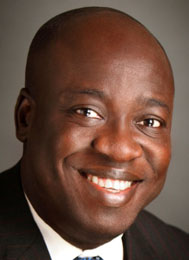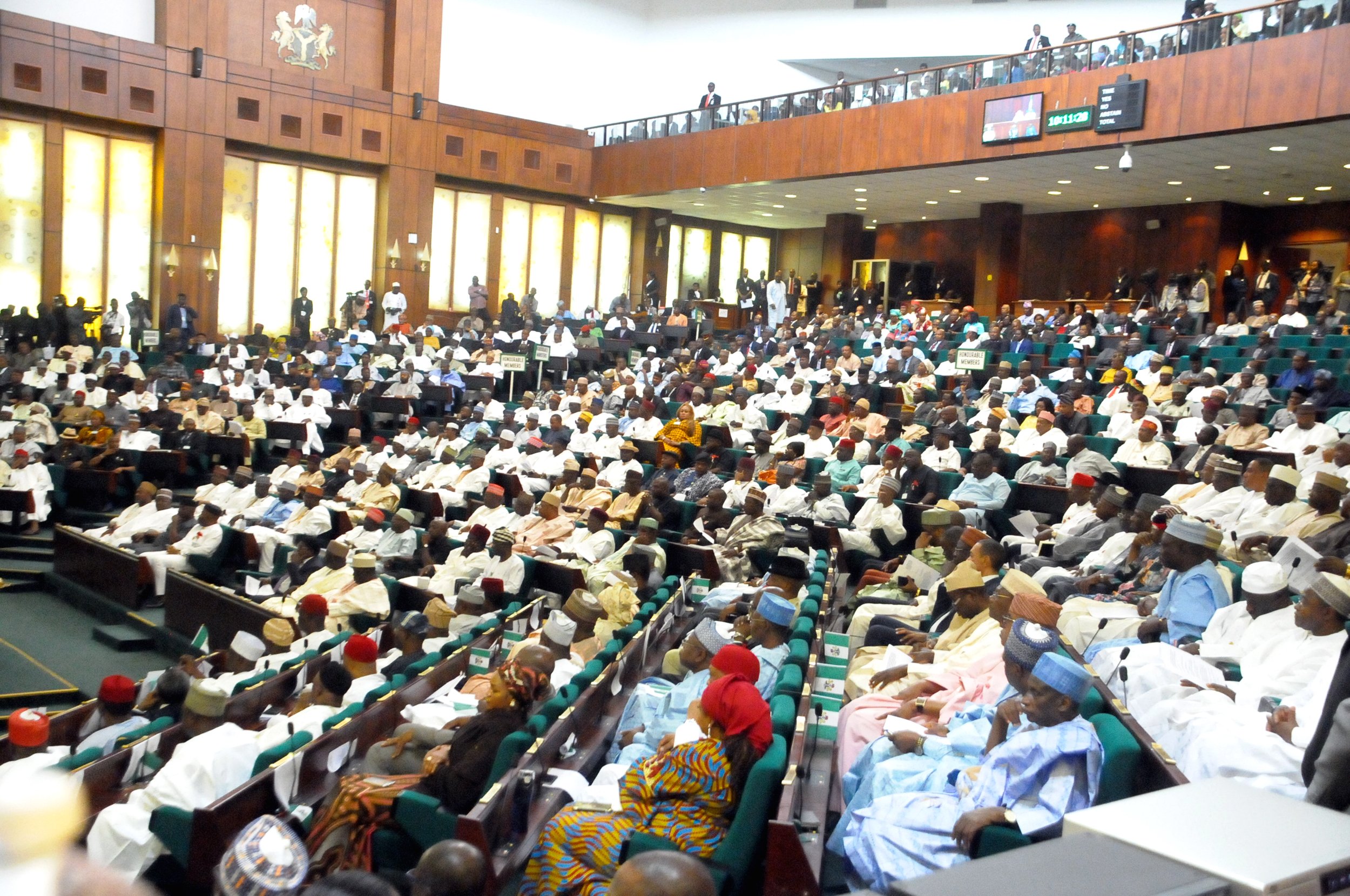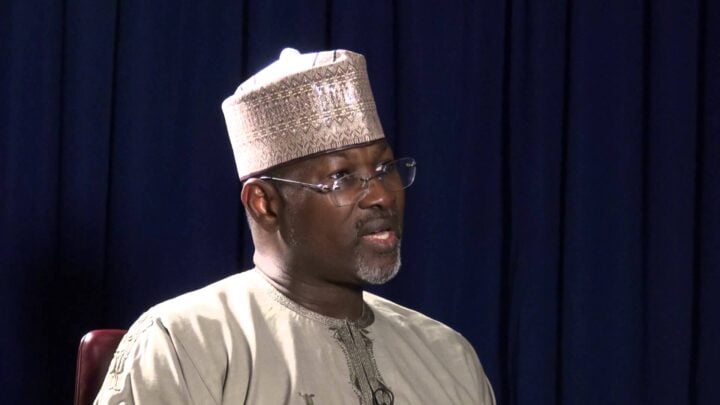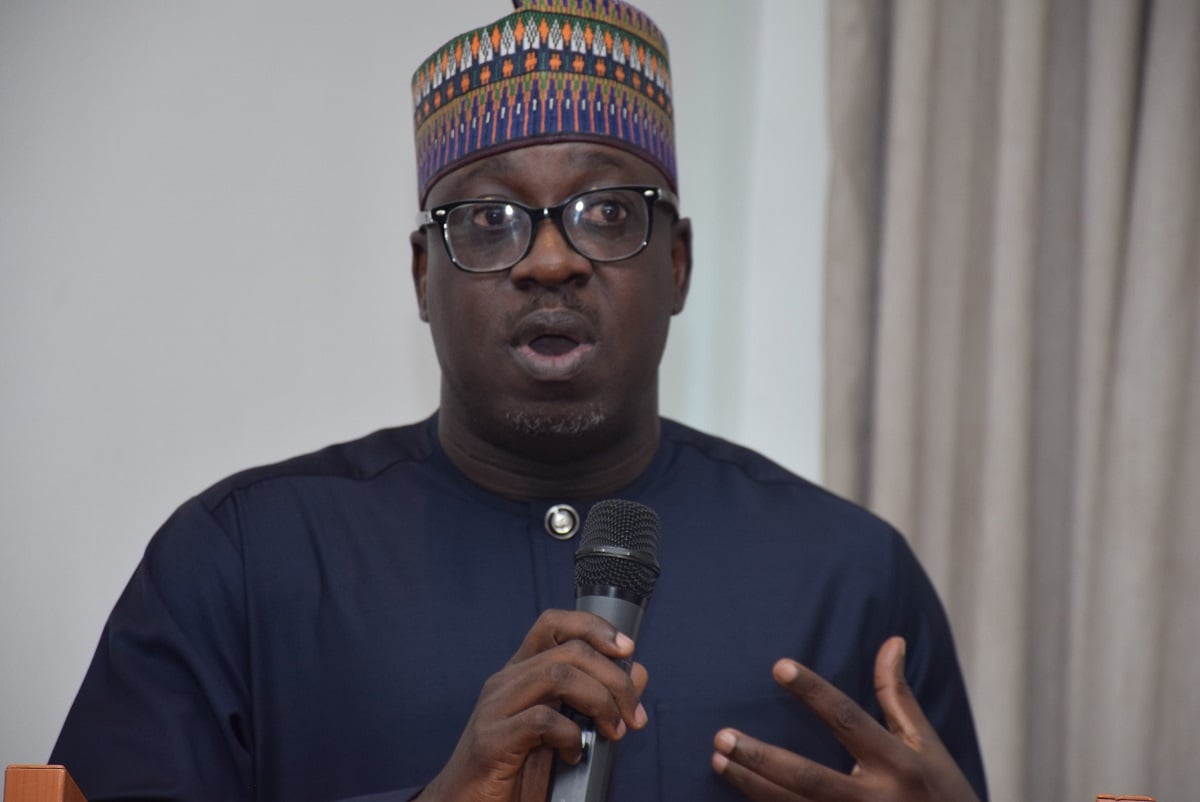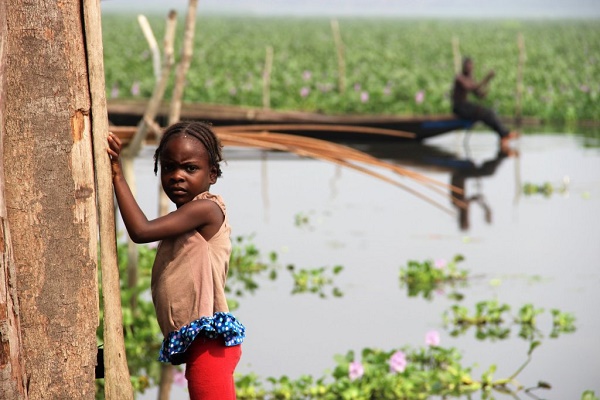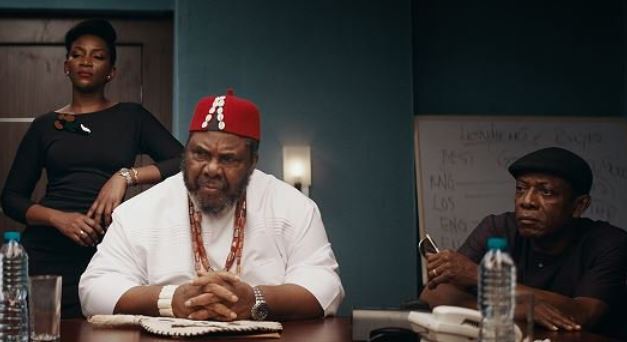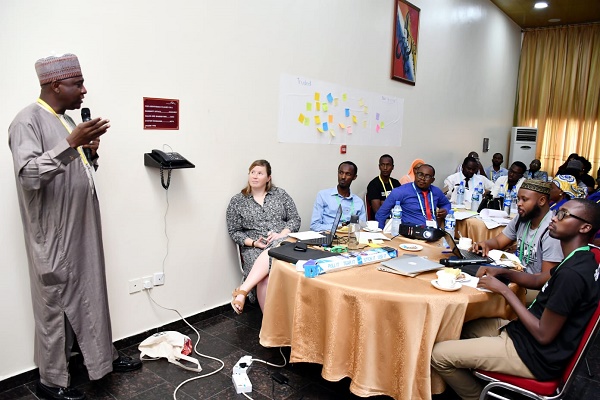About 20 years or so ago, feminists and feminist scholars began to seriously engage with the idea of bringing men into the gender conversations. Since then, we have witnessed increased interest in the study of men and masculinity as a distinct category of social analysis; as well as a complement to the study of feminism and a pathway to forging strategic alliance for furthering the feminist agenda.
The subject of women and political participation has interested me since graduate school. But that interest has since grown beyond just the academic. I am also a father, who desire to see a world where my daughters would not suffer discrimination on account of their reproductive organs. I do not deny my patriarchal privileges. But I also know that those privileges were not naturally conferred on me. Instead, they were granted by a system, a society that encouraged me to study economics and pushed my sisters to study home economics. A system that asked me to study agricultural science and asked my sisters to study food science. A system that looked at me and saw that I was smart and asked me to study law; but looked at my sisters and only saw how pretty they were and herded them into secretarial studies; where I was taught Fortran and Cobol, they were taught Pitman’s shorthand. A system that
wrote my name in blue at the top of the class list and my sisters’ names in red at the bottom of the list, not because I was smatter, but because I happened to be born with a penis.
I am here because I want to change the story for my girls. I want to be part of the efforts to build a more civilised Nigeria where all girls will be free to nurture and express their God-given talents and participate fully in public life as equal citizens of this country. I am also here because I recognise that embracing gender equality is a pathway for me becoming a better man.
A September 2000 report of Women in National Parliaments shows that
Advertisement
Africa, which had the lowest rates of female participation in politics in
1960s has since then witnessed the fastest rates of growth of female representation of all regions of the world. Rwanda remains a reference point for the rest of the world, having left even the Nordic countries behind. Although there have been a few voices of caution that have encouraged a more nuanced interpretation of this African success story on gender equality. However, the progress made by the rest of the continent has brought into sharper perspective the sad reality that Nigeria is actually moved against the trend of women political participation in Africa since 1999.
In the February 2019, the report, which ranked countries based on the number of women in their national parliaments, has ranked Nigeria 180 of 192 countries for having only 20 women of 359-member House of Representatives and 7 of 109 Senators, representing a dismal 5.6% and
6.4% respectively. It is perhaps worth emphasising that all other African countries rate higher than Nigeria. But perhaps more significantly, countries that are generally considered undemocratic or even traditionally repressive of women like Afghanistan, Sudan, Saudi Arabia and the UAE, have much better records of female representation than Nigeria.
Advertisement
Gender equality in political representation is not just about equity and justice, it is the very definition of democracy itself, which derives from the notion that the representative group of any society should reflect its diversity. Therefore, a major parameter for measuring the quality of our democracy would be the extent to which it reflects the diversity of our population; recognising gender as a distinct social categorisation, even when this intersects naturally with other identity formations like ethnicity, religion or region. If we take women representation in parliament as a proxy for measuring female political representation generally, it would be clear that even after two decades of representative democracy, we have not done quite well in both the global and the regional contexts.
Why does Sudan have 27.7% and 26.8% female representation in the lower and the upper legislative houses respectively, and Nigeria is at
5.6% and 6.4% respectively? Why does Afghanistan, home of the Taliban, have 18% more women in their national parliaments than Nigeria? These questions must challenge us to look beyond the template explanation of patriarchy and other cultural barriers.
Nigeria is a patriarchal society, yes. But so is Liberia, Gabon, Uganda, Zimbabwe, Mozambique, Burundi that have had female heads of government at various times in the last 20 years. Senegal, a country with 92% Muslim population have had a female Prime Minister in Mami Madior Boye. When President Bingu waMutarika died in 2012, Malawi allowed the Vice President, Joyce Banda to take over as President. Even countries that have felt unstable had trusted their affairs to female heads at the most critical periods in their history, Ruth perry in Liberia and Silvie Kinigi in Burundi are examples. All these countries are African, all of them, all of them deeply patriarchal. Perhaps, there is uniquely Nigerian dimension to patriarchy that makes it so normal to exclude women here.
The Nordic countries are usually held up as the model for gender equality in the world. It significant to note that countries that rank highly on gender equality index also rank very high on an index that considers equality generally. A 2018 report shows that all the Nordic countries are in the top 10 of countries most committed to achieving equality. They are also leading the table on gender equality. It is perhaps more than a coincidence that Nigeria is at the bottom of the table for both gender equality and general equality, which is further reflected in our record as the home to the highest number of people below the absolute poverty line.
My contention here is that gender inequality may be a reflection of general social inequality, which in turn may be an enabler or driver of gender inequality. However, by linking gender inequality to general
inequality I do not intend to dilute or de-particularise gender. Rather, my argument is that in constructing our theory of change for gender equality, we would need to pay closer attention to the overall parameters for inclusion and exclusion in our society, which have made the particular exclusion of women in the political arena possible or even normal in the first place.
Advertisement
It has been widely acknowledged that the Nordic society is built on the philosophy of distributive justice and a notion of equality that is deeply rooted in their history. Therefore, if we consider that Nigeria also has the highest number of people in the world living below the absolute poverty line, it would not be so difficult for us to see how all these are connected as manifestations or dimensions of the same structural deformity. Where do you begin to demand equality for a section of the population in a country that is least committed to equality among all of its citizens?
The 1999 Constitution of the Federal Republic of Nigeria declares that its objective is to “promote the welfare of all persons in our country, on the principles of freedom, equality and justice.” This would suggest that the grundnorm upon which more equal societies like Sweden or Denmark have been built are not altogether alien to our country. The same Constitution went further to state that the Federal Republic of Nigeria “shall be a state based on the principles of democracy and social justice” and went on to prohibit discrimination against anyone “on the grounds of place of origin, sex, religion, ethnic or linguistic association or ties.”
In 2016, the Senator representing Ekiti South, Abiodun Olujinmi attempted to introduce what she called the Gender and Equality Opportunity Bill. Section 8 of the Bill states in part as follows:
“Every organ or agency of government, public or private institution…shall ensure to women, on equal terms with men, the right to; (a) participate fully in all political activities, including the right to vote and be voted for in all elections and public referenda, and to be eligible for election to all publicly elected offices and bodies without any restriction, limitation or barriers whatsoever, (b) participate in the formulation of government policy and the implementation thereof and to hold public office and perform all public functions at all levels of government, (c) be given on equal terms with men and without any discrimination…the opportunity to represent such organ or agency of government… or to represent the Federal Republic of Nigeria or any part of the federation…without any restriction whatsoever.”
Like some of the Senators have argued in rejecting the bill; it is easy to see that much of the problems that it seeks to address are already taken care of by existing laws, and the rights that the Bill seeks to confer on women are those already provided for in our Constitution. It is therefore tempting to dismiss the Bill as superfluous. But this would be wrong. It is true that existing laws and the Constitution addressed these issues;
but they have not solved the problems; discrimination against women remains entrenched as ever.
Advertisement
If we take the specific challenge of women political participation; we can argue that there is nothing in our laws that prohibits a woman from aspiring to any political office. Every adult woman in Nigeria is guaranteed the right to vote and be voted for. In addition to this, no political party would officially pursue a policy that keeps women out of public life. What this would suggest therefore is that the problem is not in our laws per se.
The Nobel Laureate, Armatya Sen’s capability theory notes that the “functioning of each individual, the activities that one may undertake, depends on the set of actual capabilities with which one is endowed by a broad constellation of social factors.” It would therefore be spurious to argue that women have the right or freedom to participate in politics or public life when indeed they lack the actual capabilities, whether in terms of resources or other factors, to exercise such right or freedom.
Advertisement
In dealing with the capability challenge, we would need to pay greater attention to what happens in the domain of policy and how this could be used to empower or disempower women. The laws are there to protect your rights, but the laws would not always be able to give those rights to you. That’s what policies do. Every Nigerian has the right to build a house, or buy a car or travel on holidays. But your ability to do all these would depend on so many other factors, like you having a stable job, access to mortgage or credit at affordable rates etc.
A gender policy therefore will take over where the law stops, taking into consideration those factors that would enhance or deliberately aide the consummation of those constitutional rights. The laws say there should not be discrimination on the basis of gender. But a good gender policy would recognise that a gender-neutral ban on discriminatory practices would only allow equal treatments of unequals. Rather than non-discrimination, a policy of positive discrimination would recognise the patriarchal privileges enjoyed by men and the relative disadvantage suffered by women, especially in terms of material and social capabilities. This is not about lowering the bar for women; it is about acknowledging existing male privileges. However, any affirmative action that does not challenge institutionalised basis for male power and privileges would only come across as favours granted to women by the male custodians of power and privileges.
Advertisement
Each time I hear some women, mostly elite, argue for a level playing field, I get the feeling that these women still feel the need to prove a point that they are as good as men; in which case men remain the standard by which these women measure themselves. This is what Karl Max has described as false consciousness. Men don’t feel the need to prove that they are as good as women. Therefore, expressions such as “anything a man can do, a woman can do better”, or “I am as good as any man out there” not only promote the discourse of female inferiority, but like Bisi Fayemi has argued, it could actually lead to a dangerous situation where a few “high achieving” women end up denying the lived reality of women generally to the extent of arguing that there is
nothing to liberate women from. But like we say in IDS, whose reality counts?
Jude Howell noted that the Chinese phrase “suzhi di” best captures all the semantic contours embedded in the argument by some, including women, about the “low quality” of women in relation to public office. According to her, “it refers not only to women’s verifiable lower performance in terms of education, culture and literacy, but also to women’s own psychological internalisation of inferiority, resulting in low esteem and low self-confidence.”
Advertisement
If women are less educated, it is only natural that men will outnumber them in public life. The same if they have less access to resources. And if women have to also devote more time to domestic and family task; it is only natural that they will have less time for productive economic activities. In the last two decades or so, we have seen women venture into so many sectors, including some that were traditionally regarded as male domains– banking, fashion, agriculture, entertainment, mass communications, sports etc. However, for so many of these women, the choice still always has to be between family life and public life.
As one writer noted, “competition” could easily become the new rationale for legitimising the dominant male presence in politics and government. A push for equality without altering the power dynamics ultimately disadvantages women. You cannot speak of equality in a contest between two unequal actors. A deliberate policy of
discrimination in favour of disadvantaged people within a society is the foundation for equity and justice.
This brings us to the issue of who speaks for women? The task of articulating “gender” as an important identity category in Nigeria is going to be a tough task. This is not for any less reason than the absence of a well-organised mass movement of women in the country. The voices that are often heard are either those of pseudo-feminists who don’t even understand the basic concepts around gender equality; or a few articulate and intellectual feminists who talk down on everyone else and therefore end up scaring potential partners, alienating fellow females and end up achieving nothing other than giving feminism a bad name.
Over the years, we have also experienced the so-called state-derived feminism; which ended up serving only the selfish interests of an elite class. We have witnessed how the discourse of feminism was hijacked by wives of strongmen who created all manners of ‘poverty alleviation’ schemes that were primarily designed to mobilise women for the legitimisation of military dictatorship in the country. We have seen the same pattern continue in the last 20 years that we have returned to democracy. However, as long as the few powerful women are allowed to cynically interpret women political participation in terms of how many women are dressed up in Aso-ebi and herded into political rallies, women cannot have the right champions in the corridors of power.
Another question that must follow from this is whether women in politics actually represent women. This brings us to the issue of hierarchy of identities or what some have called “intersections” of other social differences and identities with the gender identity. The intersections of class, ethnicity, religion, or region sometimes override the gender identity and could actually lead to the “defeminisation” of women in power.
Politics is the ultimate arena where patrimonialism meets with patriarchy. Therefore, the level of compromises that politicians are required to make to gain political power is so much that it is unlikely that any woman would make such compromises and still see herself primarily as a woman, who has a primary with the responsibility to advance the cause of women in power.
Researchers have argued that there is little evidence that women in power actually serve women interest. This is because embedded within the concept of representation is also the reality of power. And even if it was possible to see ‘gender’, as a distinct homogenous constituency, it must be acknowledged that there must be different locations of power within this constituency. It would therefore be foolhardy to assume that a woman in power naturally represents women. We must therefore pursue a more nuanced definition of female political representation. The politics of gender equality is therefore not just about how men think of women but also about how women think of themselves in relations to public and political power.
What should it therefore matter to women that a fellow woman is in power if she is not likely to be represented by this woman? One way to look at it is to see women participation as an end in itself, being essentially a matter of justice and pertinent to our democratic growth. However, a more useful approach would be to understand that everyone ultimately benefits from female representation. It has been argued that women in political positions tend to give priority to certain issues different from men in similar positions. For instance, evidence abounds that female and male legislators tend to have different priorities. Therefore, greater participation in policy decision making by women could see greater attention paid to issues of child care, health and education, security and hunger, which are the most important national development issues in our country today.
It is therefore logical to argue that if we are able to bring more women into public office, we are likely to achieve a broader consensus in promoting these issues to the top of our national political agenda. Greater participation of women in politics is therefore in everyone’s interest. This is why it is important that women are able to develop the self-confidence to bring men into the gender conversation as partners and allies rather than as adversaries.
Coming back to the question of whose reality counts? The reality for most men is that the idea of gender equality would naturally translate to the disempowerment of men and the distabilisation of their family. These are the gender issues from men’s point of view, which we must take into account as we seek to engage as we seek to engage. The word
‘feminism’ generates a deep anxiety in the hearts of men. Unfortunately, it has also acquired considerable ideological and cultural baggage over the years, viewed with deep suspicion if not outright revulsion as a western agenda designed to destabilise homes and society in Africa.
It is important to note that even men who actively defend the rights of women start to demur when they have to make adjustments to the power relationship within their families. This is where the issue of rights of women get entangled in cultural values. The moment any bill or policy ventures into the family arena; it is bound to step on entrenched cultural toes and may never come out alive.
A major task going forward therefore would be how to build strategic coalitions of support to help her manoeuvre around entrenched prejudices and strongly held cultural values in seeking to pursue, especially the agenda of gender equality. Cultural sensitivity matters.
In 2012, Imo State House of Assembly passed a law, innocuously cited
as the “Violence Against Persons (Prohibition) Law Number 12 of
2012.” Because of its controversial provision on abortion, it was soon reduced to “Abortion Law.” The governor, Rochas Okorocha had to beat a quick retreat when he faced serious fire from the Catholic Church and pro-life activists in the State. The law was promptly repealed alongside other less contentious provisions that would have helped to protect women against violence in the state. The key lesson here is that when you throw abortion into a Bill that seeks to protect the rights of
women, you run the risk of having the baby thrown out with the bathwater.
It is important to point out that, more often than not, when men oppose any law or policy that seeks to alter the power relation between men and women within the domestic sphere, they merely affirm traditional customs and practices in relation to women. Therefore, unless these practices, which are sometimes rooted in people’s value system are themselves altered, any attempt to curb them with the instrumentality of laws, would always be vehemently resisted.
Religion is a major minefield that we also need to be wary of. Let me say upfront that if any law or policy contradicts the tenets of the Islamic faith, Muslims have the right to object to it, just as the Catholics would always be justified to oppose any law seeking to legalise abortion. After all, a law is an expression of the values held by a people.
However, we should be clear that there is nothing inherently incompatible between Islam and gender rights, just as there is nothing contradictory between Islam and democracy.
I recall that after the United Nations Beijing Conference on women in
1995, some Muslim countries were sternly opposed to and refused to ratify the Convention for the Elimination of Discrimination Against Women (CEDAW). Gender rights activists in these countries sat down and analysed the Qur’an which is the chief source of Islamic laws. What they found was simply startling. They found that the Qur’an, actually have granted women more rights on some issues than even the
CEDAW; and formed the basis for negotiation in the efforts to domesticate and therefore have the Convention ratified by their countries.
I referred earlier to Senator Olujimi’s Gender and Equal Opportunity Bill. Under “Modification of socio-cultural Practices,” section 7 of the Bill states that a “widow shall not be subjected to inhuman, humiliating or degrading treatment.” It also states that a “widow shall have the right to remarry, and in that event, to marry the person of her choice.” Qur’an 4:19 states thus:
“You who believe, it is not lawful for you to inherit women against their will, nor should you treat your wife harshly, hoping to take back some of the bride-gift you gave them, unless they are guilty of something clearly outrageous. Leave them in accordance with what is fair and kind: if you dislike them, it may well be that you dislike something in which God has put so much good.”
On violence against women, the Qur’an states in 4:128,
“If a wife fears high-handedness or alienation from her husband, neither of them will be blamed if they come to a peaceful settlement, for peace is best.”
On inheritance, Qur’an states in 4:7,“Men shall have a share in what their parents and closest relatives
leave, and women shall have a share in what their parents or close
relative leave; whether the legacy be small or large. This is ordained
by God.”
On the contentious issue of women’s reproductive rights, it is interesting to see how much leverage the Qur’an gives to women, even in deciding whether to breastfeed her child or not. Qur’an 2:233 states thus:
“Mothers suckle their children for two whole years, if they wish to complete the term, and clothing and maintenance must be borne by the father in a fair manner. No one should be burdened with more than they can bear: no mother should be made to suffer harm on account of her child, nor any father on account of his. The same duty is incumbent on the father’s heir (if he dies). If, by mutual consent and consultation, the couple wish to wean [the child], they will not be blamed, nor will there be any blame if you wish to engage a wet nurse, provided you pay as agreed in a fair manner. Be mindful of God, knowing that He sees everything that you do.”
The notion of “mutual consent and consultation” here implies equality between the couple, as there would be no need for consultation and consent if the Almighty Allah intended the relationship to be that of subordination. By the way, there is nothing in Islam that compels a woman to drop her maiden name for her husband’s family name after marriage.
There are so many other provisions in the Qur’an that affirm rather than
deny the rights of women. I believe there would be women-focused
NGOs who have done some work in this area. For too long, people have hidden under the banner of religion to give expression to their syncretic traditions or practices. Their real cover however, is the ignorance of the majority of what the Holy Books actually say or the conspiratorial silence of men who should know. It is about time we shined the light of knowledge in their hiding corners.
2023 will be another watershed moment in our politics. For the first time, majority of the politicians and political leaders that have dominated our politics since independence are not likely to have a strong say in determining the direction the country would do. It will therefore provide important opportunities to re-engage in redefining the character of our politics. Therefore, this kind of conversation could not have come at a better time than now.
If we look back over the course of the last 30 years or so, we would see the incredible work that the forbearers of feminism in our country have done; their intellectual contributions in articulating the authentic African and Nigerian feminist agenda as well as the practice of feminism in various civic and political spaces. The successor generation must be willing to lean on their proud history. But they must also develop the historical awareness, intellectual capacity, and the ability to form broad coalitions across multiple spaces, including with men. They must also have clarity in defining what success should look like. Sometimes, it is more strategic to focus on the marginal gains than the quantum leap.
Add a comment
